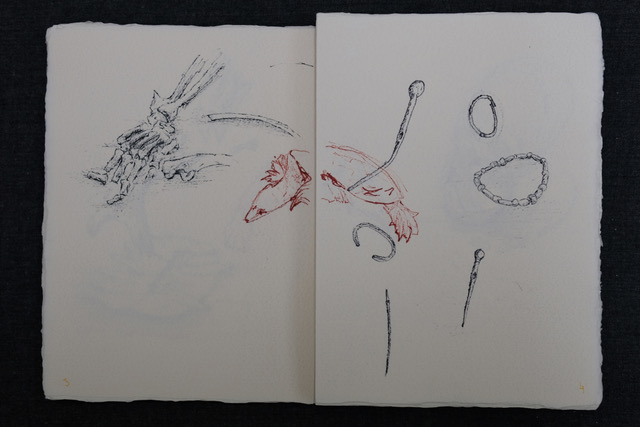The Two Rivers of Mesopotamia, an artistic research project seeks to analyse the effects of war on ecological and cultural heritage, within the socio-political framework of Kurdish inhabited territories. The research project is rooted in the ongoing conflict in south-eastern Turkey, analysing its consequential influence on ecological habitats within the region. The dam projects as a 'power mechanism' unfold different relationalities and temporalities of the habitat around the Tigris and Euphrates rivers. Through the Mesopotamian soft-shelled turtle, an endemic species that lives alongside the affected rivers, a manual hand-book of drawings envisions both submerged and emerged elements in relation to the dam projects in upper Mesopotamia. A very fine dissecting process of the soft-shelled turtle captures a political and social entanglement of this particular land which is agonised from the effects of an ongoing war.
Rojda Tuğrul is an interdisciplinary artist and researcher, whose practice is concerned with the notion of identity in relation to space. Her research project seeks to analyse the effects of war on ecological and cultural heritage, within the socio-political framework of Kurdish territories. Whilst examining the spatial transformation and deterioration of a habitat as a trace of change in the culture and collective psyche of society, her work also explores the politics of art, the autonomy of artistic representations, and the power of images. Tuğrul holds an MSc in Veterinary Studies and she graduated from Mardin Artuklu University with an MA in fine arts. Currently, she is in the process of writing her dissertation as a candidate in the PhD in Practice Program at the Academy of Fine Arts in Vienna.
This lecture is public and can be attended via joining the following link:
https://us02web.zoom.us/j/82037152636?pwd=WGRLdWRWRzJseVhGb29pK1FXeVd0QT09
